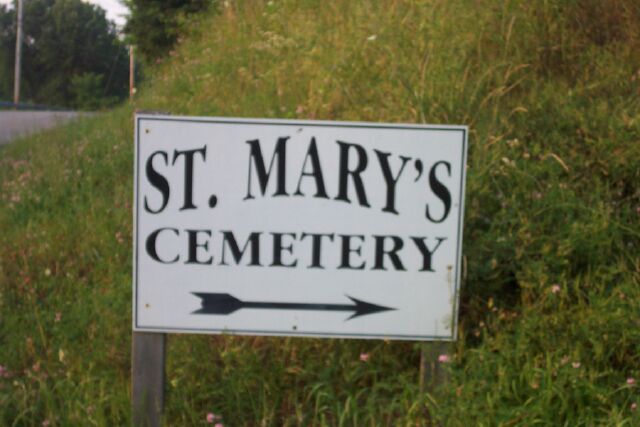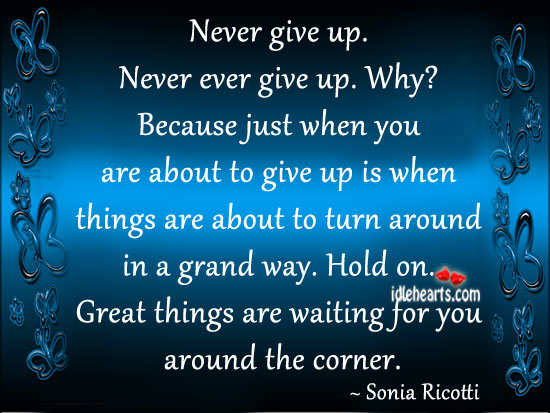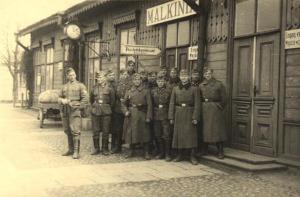That
being said, I don’t post just because it’s a certain day or time and I need to
have a post. I think its not very useful or informative for my reasons, so I
limit what I have to say to when I think I should share something. To me, time
is precious and it should be used only when something important can be said or
shared.
Now...getting
back to the topic...Remember to accentuate the positive
GeniAus has invited me to take part in this activity by responding to the following statements/questions in a blog post. Write as much or as little as you want or just answer a few questions...
GeniAus has invited me to take part in this activity by responding to the following statements/questions in a blog post. Write as much or as little as you want or just answer a few questions...
1. An elusive ancestor I found was
2. A precious family photo I found was
3. An ancestor's grave I found was
4. An important vital record I found was
5. A newly found family member shared
6. A geneasurprise I received was
7. My 2014 blog post that I was particularly proud of was
8. My 2014 blog post that received a large number of hits or comments was
9. A new piece of software I mastered was
10. A social media tool I enjoyed using for genealogy was
11. A genealogy conference/seminar/webinar from which I learnt something new was
12. I am proud of the presentation I gave at/to
13. A journal/magazine article I had published was
14. I taught a friend how to
15. A genealogy book that taught me something new was
16. A great repository/archive/library I visited was
17. A new genealogy/history book I enjoyed was
18. It was exciting to finally meet
19. A geneadventure I enjoyed was
20. Another positive I would like to share is
2. A precious family photo I found was
3. An ancestor's grave I found was
4. An important vital record I found was
5. A newly found family member shared
6. A geneasurprise I received was
7. My 2014 blog post that I was particularly proud of was
8. My 2014 blog post that received a large number of hits or comments was
9. A new piece of software I mastered was
10. A social media tool I enjoyed using for genealogy was
11. A genealogy conference/seminar/webinar from which I learnt something new was
12. I am proud of the presentation I gave at/to
13. A journal/magazine article I had published was
14. I taught a friend how to
15. A genealogy book that taught me something new was
16. A great repository/archive/library I visited was
17. A new genealogy/history book I enjoyed was
18. It was exciting to finally meet
19. A geneadventure I enjoyed was
20. Another positive I would like to share is
©
Copyright GeniAus 2013
So here it goes to accent the POSITIVE – this is a bit late but its better than never at all! So here’s my answer’s…
1. An elusive ancestor I found was - on my maternal side. My uncle, whom I thought had died, and cousins. It was a shock to learn they were only about 10-15 minutes away from where I grew up and I never knew about them. Also, cousins on my grandmother's maternal line - all the way back to Poland!
2. A precious family photo I found was - I had 2! My great grandmother Anna or Annie Larson Gauquie's passport photo. My mother always talked about her but until I saw that picture I didn't feel a connection.
I also found my mother's maternal great grandmother, Walerja Rutkowski Ostrzyski (known as Valerie Ostrzyski), pictured as well. This one was on her headstone.
3. An ancestor's grave I found was - I actually found a group of them. One group of the Gauquie's was in or at Saint Mary's Cemetery in Washingtonville, NY.
3. An ancestor's grave I found was - I actually found a group of them. One group of the Gauquie's was in or at Saint Mary's Cemetery in Washingtonville, NY.
4. An important vital record I found was - It wasn't exactly an important vital record but it was important. It was my Great Aunt Helen's funeral and obituary announcement. She had only just passed away and I was searching for anything, again, on that side of the family. I noticed and matched up some of the names and left a condolence message. Now I'm in contact with the that side of the family - and I am hoping to have first hand contact with my uncle soon. Thank you Great Aunt Helen!
 |
| The reason why I've had contact with my mother's side of the family again - My great Aunt Helen. |
5. A newly found family member shared - Pictures of my maternal grandparents. I never knew what my grandfather Louis looked like and I was very little when I had last seen my grandmother, and namesake, Janet. There's also much other information that has been shared, but pictures mean the world.
6. A geneasurprise I received was - help with my great grandfather, Jules, connection to Belgium. People found and shared, through Geneanet, my great grandfather Jules' full name and his birth certificate - even found out when he was born he was illegitimate!
 |
| My Great Grandfather Joannes Julius Van Rompaye and later changed to Gauquie |
7. My 2014 blog post that I was particularly proud of was my paternal grandmother Genowefa M Wojtkowska Schmitz's part 1 of her life. I want to finish this up and write a more in depth one for the family.
 |
| My Grandmother's picture |
8. My 2014 blog post that received a large number of hits or comments was my first post of Welcome to my blog had the largest number of hits.
9. A new piece of software I mastered was the Belgium Archives. I spent over a month on the website!
10. A social media tool I enjoyed using for genealogy was the forum for Geneanet. It was different because of the different languages it covers. I do get lost every now and then but I'm still finding different sections of it. In fact, my husband's using it took and I think I got him hooked on it as well.
11. A genealogy conference/seminar/webinar from which I learnt something new was - I didn't get to go to any this year. But I did set up and gave a beginner's class and have a chat at the local community space about genealogy.
12. I am proud of the presentation I gave at/to Coonara Community House. We trialed a 5 week course and everyone walked out after 5 weeks with at least 1 piece of information about an ancestor they wanted. They also had further ideas of where to go to look among other things. We are also looking at holding an hour meeting once a month at the local community meeting space.
13. A journal/magazine article I had published was - it did not happen.
14. I taught a friend how to do a search for newspapers and using Google to find some ancestors.
15. A genealogy book that taught me something new was Polish Roots by Chorzempa.
16. A great repository/archive/library I visited was the Belgium Archives as I outlined above. I'm also learning how to take what I found there and find it on FamilySearch.
17. A new genealogy/history book I enjoyed was probably the various webpages I found written by numerous people who I've read about and put interesting facts together for my timelines for my family and ancestors.
18. It was exciting to finally meet a few of my cousins online. I cannot wait to meet them all in real life!
19. A geneadventure I enjoyed was going into a college/university here in Australia to help my husband get the prospectus on a photographic company of his ancestors.
20. Another positive I would like to share is not to give up. Sometimes it might take you awhile to get there, but you will get there. Also, think about going at things a different way. For instance, I didn't know where to start with getting further for my ancestors, so I started looking up information that was on census' - what is Belgium? Germany? Poland? What is Flemish? Where is that located? Does the surname/last name have a meaning? (for instance Jagodzinski's were sometimes known as Berry farmers and some people changed their surname/last name to Berry upon arriving into the US). Its taken me over 10 years to get through the brick wall of my mother's family. However, now I have the information is just flowing right through like a river with a new lease on life. This new lease is also giving me the confidence to keep on going as well!













